- Projects
Menu
by Paris Kosti on Innovation Forum
Diaxxo AG is a spin-off start-up from the Functional Materials Lab at ETH Zurich founded in 2020 by two young entrepreneurs, Dr Michele Gregorini and Philippe Bechtold, aspiring to revolutionize point-of-care diagnostics. They developed an innovative polymerase chain reaction (PCR) device, named peakPCR, based on years of research that is fast, portable yet efficient in performing high quality PCR. They believe that their technology, peakPCR, will help doctors identify and fight diseases faster. Having already validated their technology for COVID-19 detection, the company is now working on getting their devices certified and expanding their use in other diseases.
IF Lausanne (IFL): We have seen that you developed a small and portable PCR machine that performs PCR fast and reliably.
Michele: One and a half year ago I had to explain what PCR is and when it is used. Now with the COVID pandemic everybody knows what it is.
IFL: Could you tell us more about your technology?
Michele: PCR itself is an established technology, it was invented several years ago. The main problem of current PCR systems is that conventional instruments are rather big and slow. You can process a high number of samples but it takes 1 to 2 days before you actually get the results. So what happens in practice is that the doctor sends the sample (the swab sample for example) to the laboratory; then there is a technician who processes the samples, loads and starts the machine. Then, you allow 2 hours for the reaction and after that you have to process the results and communicate back to the doctor (probably a day or two after) and finally the doctor interprets the results and informs the patient.
What we want to do is to bring the whole analysis to the point-of-care setting. The goal is to transform the conventional sample analysis process so that you go to the doctor, they take a swab sample and then they run the experiment and analysis directly on the spot. Within more or less 20 minutes the doctor has the PCR results in hand, interprets them and directly makes the diagnosis.
We can achieve that with our device which is portable, autonomous, fast and yet efficient. Our technology lies on modifying the reagents and preloading them in dried form in the machine chip. Also, our material allows for fast temperature cycling and thus shortens the overall reaction time. You can test multiple pathogens at the same time; for example, now we have developed a cartridge for COVID-19 that can test simultaneously for several variants of concern in a short time. Other cartridges can be used to test for Chlamydia and Gonorrhea or in general for up to 7 different diseases.
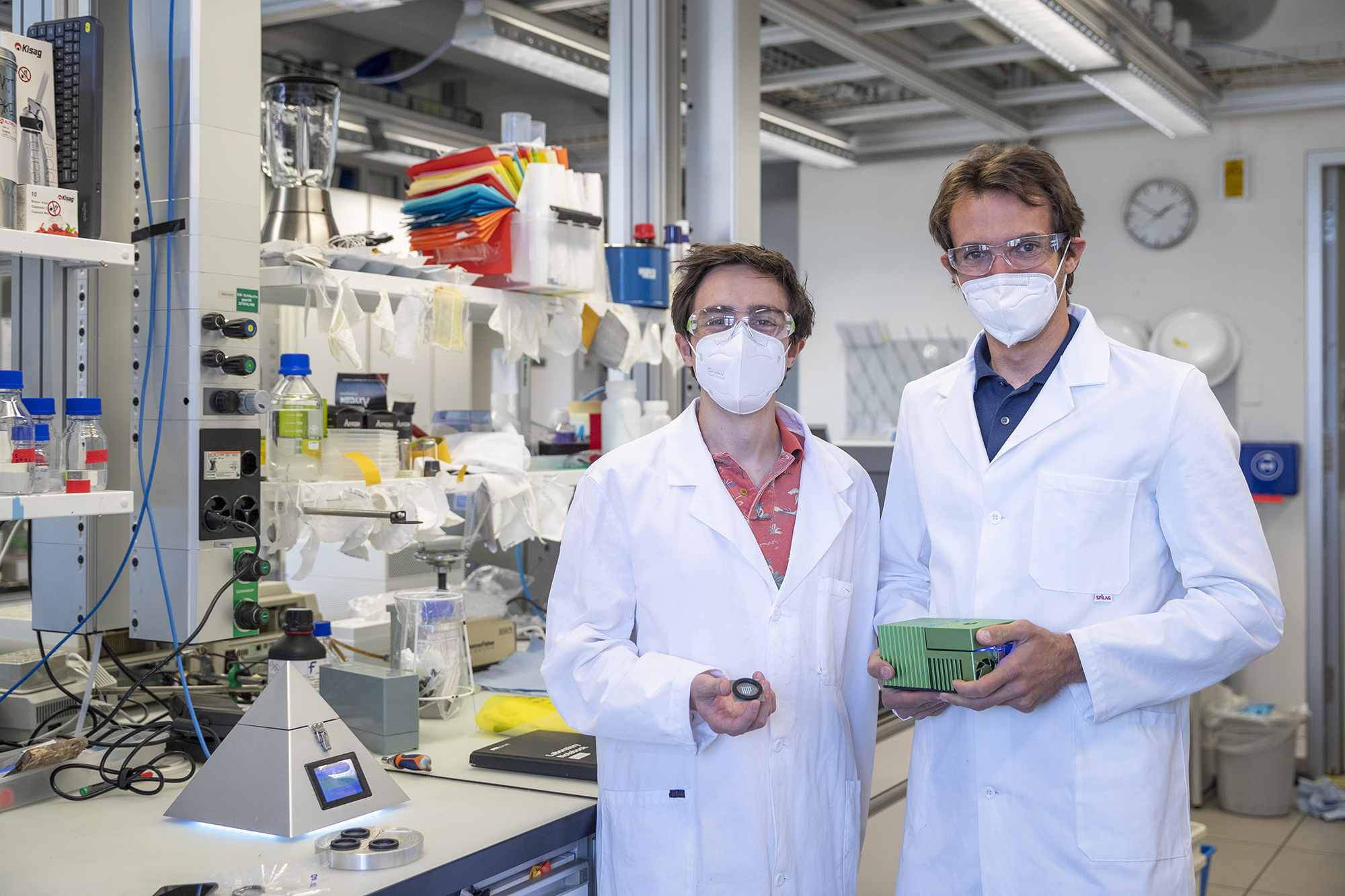
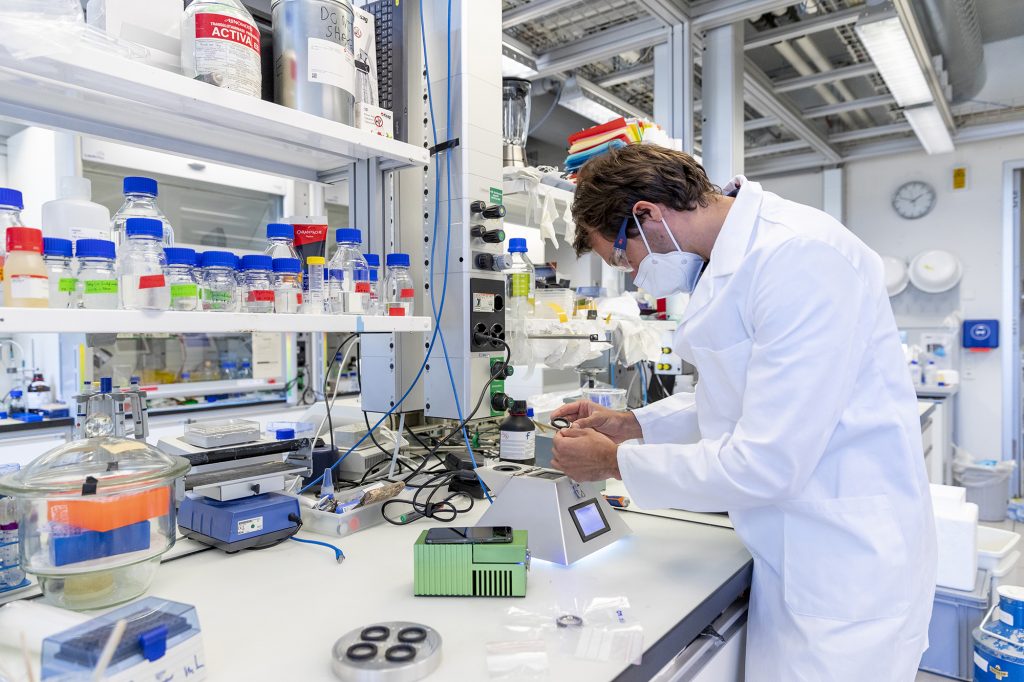
IFL: Do you have any competitors and how does your technology differ from theirs?
Michele: There are other point-of-care PCR machines out there, GeneXpert to name one, but what makes us special is that with our technology we can perform PCR really fast (20 minutes, even 10 minutes for some applications) for a very low cost with a non-microfluidic cartridge which is very easy to produce, very easy to scale up and that does not need any cold chain –so we are still somehow unique in all the point-of-care features that we have.
IFL: At what stage are you currently at in terms of securing IP and what did you protect?
Michele: We have currently two patent applications running. The first relates to our sample holder for the detection of 2 of the most tested STIs simultaneously, Chlamydia and Gonorrhea, and the cartridge itself, together with the way of loading the reagents. The second IP is on a different type of cartridge that we want to use for digital PCR where you get absolute quantification of genomic material present, which is really important for example for malaria or HIV.
IFL: Did you have any experience in the past with startups or this is your first attempt? Have you always wanted to start a company or is it something that came about by doing your PhD research?
Michele: This is my first company but our professor advisor is more experienced and has more entrepreneurial experience. Well yes – it came out of my research study as a part of my PhD.
I think what is really great in starting a company is to create value and that gives you satisfaction. With a company you create jobs, you create new products and this is something really motivating.
I really love what we are doing because I think that diagnostics should be available for everybody and everywhere. But I love even more the fact that we are creating new technologies/designs that never existed before and this is a true driver for me.
IFL: Could you tell us about your team –how did you select the right people and what are the dynamics in the team?
Michele: I will start with a short story. There are a lot of startup trainings and in the first one I did one of the first things that I heard is that “The team is everything”. Back then I was thinking “yes but come on… we need to make the product first” and I was focused on the technical aspect.
Today after 1 year or so in business I think the team is absolutely everything. There is nothing else that matters more.
It is indeed really important and we are lucky we formed a great team with diverse expertise and characters, yet they perfectly fit together. After doing the selection we invited successful candidates to come to the workplace to see if we can work well together and if they like the atmosphere.
Also through great collaborators that we have, we managed to ship our device to several locations in Africa for testing Schistosoma in more than 10,000 children.
We value the friendly atmosphere amongst us and we also organize activities together like games and hikes.
With your team it is also very important to have a common goal—and I think we do.
We also have great advisors both from academia and industry and that really helps.
IFL: How do you see the future of your company?
Michele: Currently we are working towards design freeze of the final product components in order to certify our technology in 2022-2023 and then access the medical device market. In parallel we are building collaborations in Africa and we want to develop test kits for dengue, malaria, and other tropical diseases in countries where there is really a strong need. This work is financed also by the Botnar Research Centre for Child Health and the European and Developing Countries Clinical Trials Partnership (EDCTP). In order to gain faster access to the diagnostics market we are also happy to consider partnerships and join our forces to expand the adoption of our technology.
IFL: How supportive do you think the Swiss ecosystem is to build a startup?
Michele: To be honest I feel extremely lucky. I had the opportunity to study at ETH, which is really a world-class institution, and when I started building the company I received support from several institutions of the Swiss Start-up ecosystem. There is a lot of funding for early stage startups and we were able to access substantial financial resources –already more than half a million in non-dilutive funding from different sources such as the ETH Pioneer Fellowship, SNF-BRIDGE from the Swiss National Science Foundation and Innosuisse, as well as private foundations. There are plenty of programs, trainings, workshops, competitions.
IFL: Personally what did you gain from the experience of starting up your own company? What is one thing that you underestimated before starting your company, but in the end proved to be crucial in the process?
Michele: I come from a technical background and now, all of a sudden, I am dealing with Business Development, Human Resources and Public Relations. What I am really gaining is all the business expertise. Also dealing with a team requires different kinds of skills. You have to be good on the technical level because you want to communicate well with your team or work together on the same problem, but you also have to consider that we are people with different problems and different backgrounds, and therefore you have to be able to connect and have empathy. I think it really helps if you are on the same line with the team and have the same goal.
In the beginning you think you have to work only on the technology but no – you need to focus on the business as well and make sure you are developing the right technology for the right application.
You have to really think about who is going to use your product.
Otherwise, the biggest risk that I always see is that you develop the best product in the world that nobody uses and that nobody wants to buy.
IFL: What would be your advice for the wanna-be entrepreneurs out there or people who are thinking of making the step to start a company?
Michele: If you want to start a company and have the idea of what you want to build, build it quickly – put together whatever you can – and go talk to people, talk to the potential users of your technology and get feedback.
Because the feedback that you get from people really drives the development of your product.
The opposite, building it until it’s perfect because you are a bit afraid of showing it, doesn’t help you. You burn money, you burn resources. By iterating as quickly as possible on the feedback you receive, you really grow your product/idea.
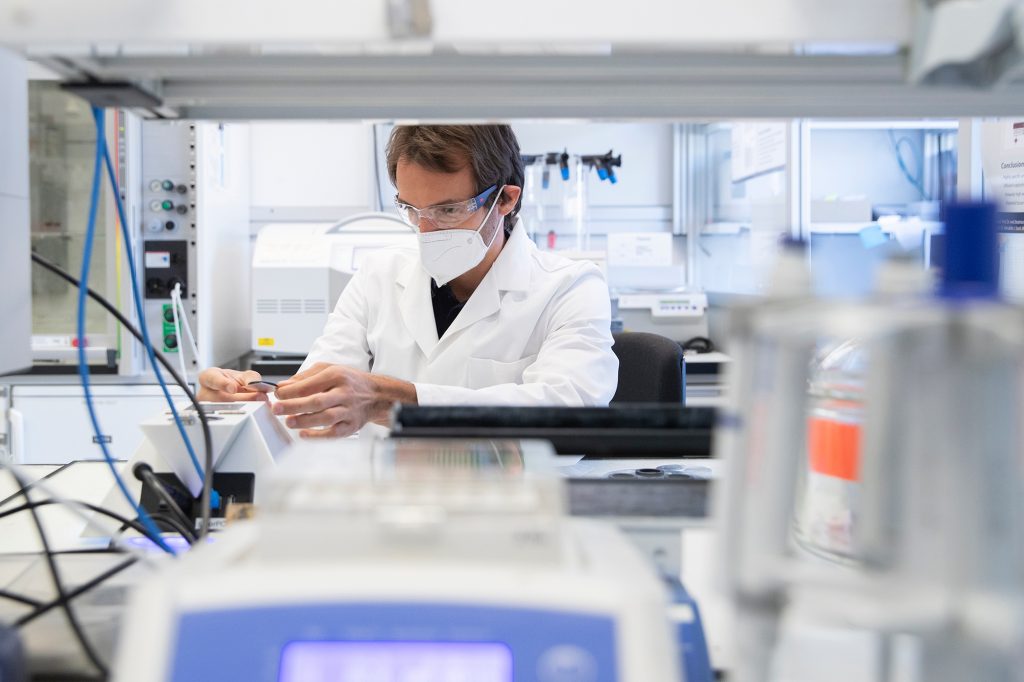
diaxxoPod (RUO)
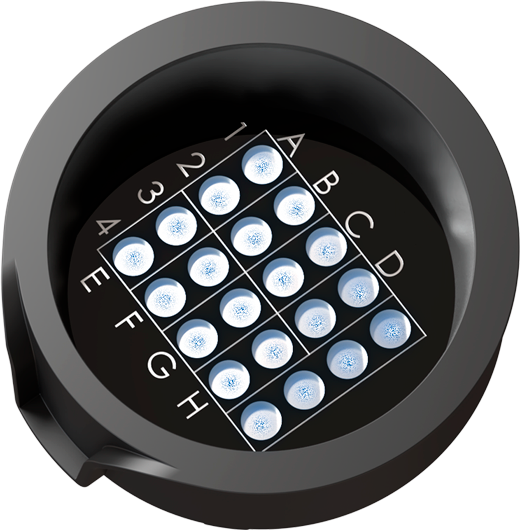
Our in-vitro diagnostic test cartridge based on rapid Polymerase Chain Reaction (PCR) amplification technology. This cartridge can reliably detect and distinguish the mutants from UK (20I/501Y.V1, B.1.1.7 – VOC-202012/01) as well as the South African mutation (B.1.351 lineage).
The test cartridge is aimed to improve the public health situation by rapidly enabling the detection of variants of concern. The cartridge is designed for qualitative detection of variants of interest of the SARS-CoV-2 Viral RNA in saliva samples and it works in conjuction with diaxxoPCR.
The test cartridges are sold with all the necessary reagents pre-loaded in the reaction wells. The use of the test cartridges is therefore extremely simple:
diaxxoPod
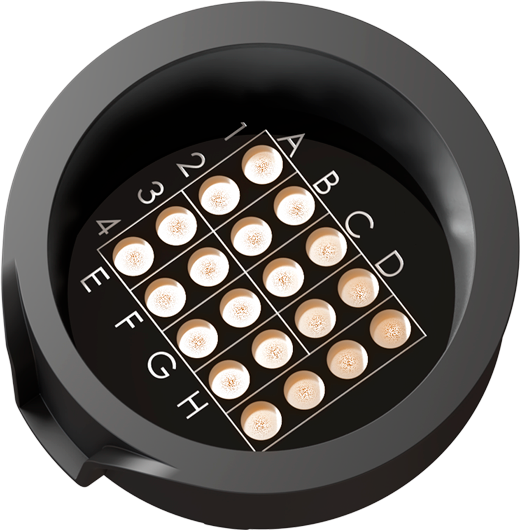
The test cartridges are sold with all the necessary reagents pre-loaded in the reaction wells. The use of the test cartridges is therefore extremely simple:
We use cookies on our website to give you the most relevant experience by remembering your preferences and repeat visits. By clicking “Accept”, you consent to the use of ALL the cookies.